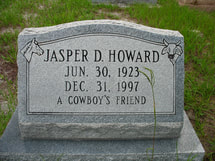
The death of someone close to you can quite literally leave you feeling lost for words. How can you capture the depths of the grief you feel? How can you hope to contain all they meant to you and the love you feel for them in mere words?
That is why writing an epitaph for a loved one can feel like an impossible task. It isn’t just your own complex feelings you are trying to chisel into a permanent form. You are writing something that will speak for everyone who knew, loved and admired the deceased. You are trying to say something meaningful about their life, character and legacy in a few short lines while drafting something that will stand for decades, etched in stone for all to scrutinize.
It’s no wonder people find it hard to write an epitaph for the headstone or memorial plaque or why so many people turn to the many lists of suitable quotations available online and simply choose one. There is nothing wrong with borrowing well-known lines crafted by great wordsmiths, but the key question is, does it capture what you want to say about your loved one? Is it personal enough?
Writing an epitaph for someone you care dearly about and have lost is possibly the hardest thing you’ll ever have to write. Here are some tips for how to approach it.
1. Take your time
Good writing in any form is never something you should rush. Whether you are writing the words for an epitaph yourself or choosing a relatable quotation, don’t just settle for the first thing you come up with. The last thing you want to do is get that sinking feeling of regret once the words have already been inscribed in stone. Give yourself plenty of time. If you are struggling with what to write, don’t push it. Give yourself space to mull over ideas, jot down a few, read them back and see how they work. Keep coming back to the task with fresh eyes, and only settle for a final version once you are sure.
2. Get other people involved
Writing an epitaph does not have to be a solitary task. Bouncing ideas off people who also knew and cared for the deceased is strongly recommended for two reasons. One is that we all write better when we share ideas and get feedback and advice from others. It helps us to get out of the dreaded mental cage that is ‘writer’s block’ and means we can confirm or dismiss our own nagging doubts or hunches through another’s assessment. Secondly, an epitaph is a communal experience, something that stands as a memorial to a person in a public place, for everyone to share. People who knew the deceased all have an interest in the best words that will resonate with their both their memories and feelings, a challenging task if you try to go it alone.
3. Write for the loved one you have lost
Finally, perhaps the best piece of advice for anyone tackling this difficult task is to start off by thinking, “What would they have wanted?” This might make the complex task more straightforward. If, for example, they had a favorite author, poet, poem, or song then a first step is to consider quoting from that person or piece of work. If they were religious, perhaps a quotation from scripture would be most appropriate.
If none of this applies, the next thing is to consider what is most memorable about the person, and what they would want to be remembered for. If they had particularly strong views or values, these could form your subject matter. If they were well known for a passion in life, an area of expertise, or work they dedicated themselves to, that could also be your cue.
Whichever approach you choose, perhaps the best guiding criteria is this - sum up, in little more than a couple of lines, the core essence of what that person meant to you, their family and friends, and the difference they made in the world. It’s not easy, but it’s a chance to honor their memory in a powerful and meaningful way.
Kenward & Son is a family-run firm of monumental & architectural stone masons based in West London. For more information, click here.
 RSS Feed
RSS Feed
